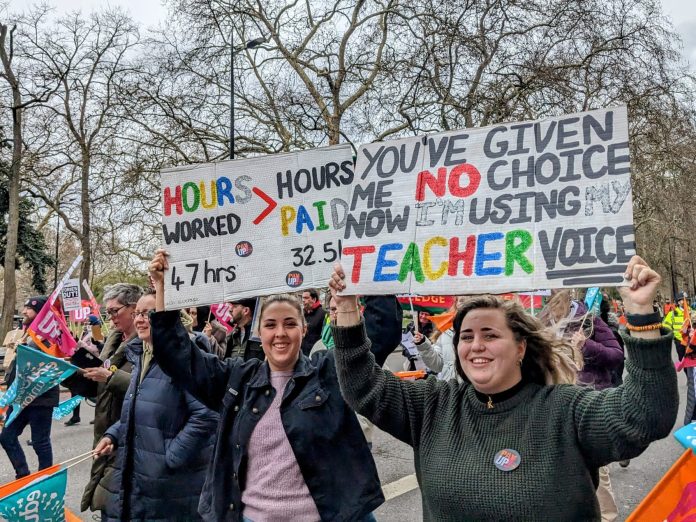● Reject unfunded insufficient pay offers
● Make the super-rich pay
● Prepare for a 24-hour general strike
Scott Hunter, Swindon Socialist Party
The average worker is £11,000 a year worse off than they would have been had wages continued to grow at the same rate as before the 2008 financial crisis. In that time, the super-rich have only got richer.
Profits of Britain’s biggest companies are 89% higher than before the pandemic, and the government can afford to give pensions tax breaks to the richest 1% of earners.
Inflation-proof pay rises, at or above the rate of RPI inflation, are absolutely possible, and necessary to stop the more than a decade-long assault on our living standards.
Budget Day, 15 March, saw the biggest day of strike action yet in the ongoing strike wave, with over 600,000 workers taking action.
The strike wave has boosted the confidence of millions of working-class people, demonstrating our power when we act together. It has shaken the rotten Tory government.
From a position of ‘no compromise’ in January, in just a few short months Sunak’s government has been forced to the negotiating table with new pay offers.
The Socialist Party campaigns to reject insufficient pay offers. None of the deals offered so far make any clear commitment to increase funding for schools or the NHS – key demands of striking health and education workers.
The fact that new offers have been extracted from the government is proof that striking works. Further strikes – with further days of coordinated action, backed up by a huge trade union-organised weekend demonstration between now and the May elections – can force the Tories to concede more. Action up to and including a 24-hour general strike could be enough to topple them.
The trade union leaderships must work together to organise this. The Socialist Party calls on the trade union leaders to immediately organise a conference of the elected leaderships of all unions involved in strikes – to discuss the next stages of coordinated strike action, but also to prepare a working-class political opposition, starting by preparing a list of workers’ candidates to stand in the next general election.








